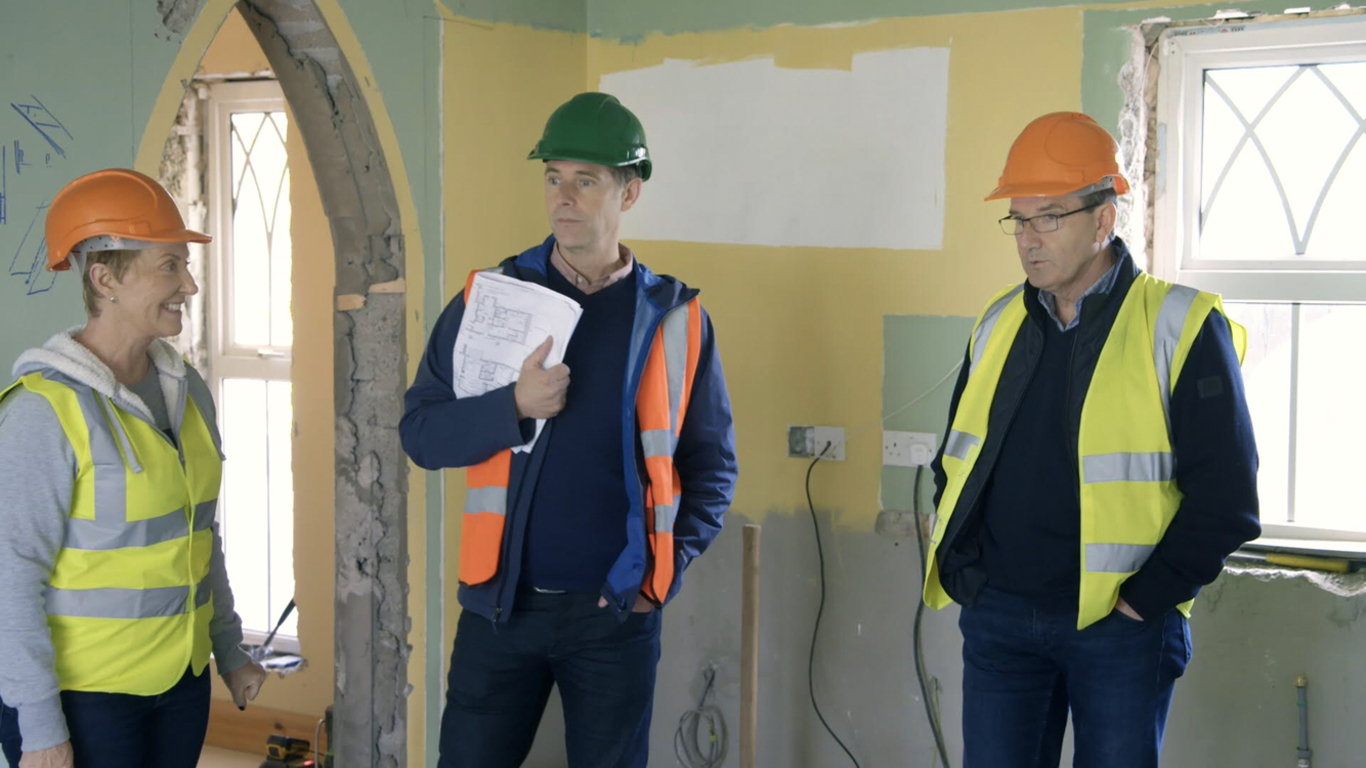What managers can learn watching Dermot Bannon wreck the gaff on Room to Improve
Budget? What budget?
THE RECENT SERIES of RTÉ’s Dermot Bannon-led show, Room to Improve, has been a major success, delivering some great characters and providing a real insight into the challenges that arise when getting sizeable projects over the line.
We can all take lessons from the series and learn how to employ project management best practices that will help you succeed.
Here are my four Room to Improve project management skills that you can adopt, ensuring better business outcomes for your organisation… or your home extension.
1. Dealing with the budget
Budget is the bane of any home improvement project. We all have a limited amount of income but an unlimited number of ways to spend money we don’t have.
Much to the horror of Lisa, the quantity surveyor on the show, budget never seems to bother Dermot too much as he will always prioritise the ‘wow’ factor above cost control.
The result is sometimes that whatever budget was in mind at the start of the project becomes a distant memory by the end of the show.
The trick to keeping on budget is realistic decision making – if you only have a limited amount to spend on fitting out a kitchen, there is no point in checking out gold-plated door handles.
Likewise, a project manager needs to make whatever tough decisions are necessary to deliver their project within budget. If that means de-scoping to the minimum viable project, so be it.
2. Dealing with stakeholders with conflicting requirements
In the latest series, when working on wee Daniel O’Donnell’s house refurb, Dermot quickly zoned in on Daniel’s wife Majella as the key decision maker.
Rather than argue against Daniel’s demand for squeezing in an excessive number of toilets, Dermot leaned on Majella, knowing she would calm Daniel’s nerves.
As project manager, it’s important you listen to all inputs, and try to come up with a win-win solution. However, in the event of having to disappoint somebody, try to make sure it’s not the main stakeholder.
 Room to Improve's Dermot Bannon and Lisa O'Brien
Room to Improve's Dermot Bannon and Lisa O'Brien
3. Dealing with change
I love Dermot’s look of innocence when faced with irate builders wondering who approved the change in ceiling height or who ordered those strange coloured windows when it was previously agreed they’d be white.
We all know that building specifications can change over the course of a project, but those changes should not come as a complete surprise to some of the people who matter most.
These surprise changes are examples of ‘scope creep’ – uncontrolled changes to the project scope. Be in no doubt that this is always a bad thing and can cause a lot of conflict.
Whenever there is a change in scope, it should be identified, managed and communicated so it becomes part of the new project plan.
Whether it is Brexit, GDPR or the onset of digital transformation, organisations must respond to changes in a controlled manner.
4. Using your project team
Often when Dermot runs into a technical challenge, he will call in his trusted sidekick Lisa to complete a cold analysis of the situation and advise him on how to proceed.
Sometimes she plays the role of the ‘bad cop’, to soften up the builder, allowing Dermot to stay in ‘good cop’ mode.
No matter how experienced a project manager may be, he or she must rely on the diverse skill set of the wider team and must know when to defer to a team member’s expert judgement.
Pat Lucey is CEO of Aspira and president of the Ireland Chapter of Project Management Institute. The organisation will be holding Ireland’s biggest national project management conference, with headline sponsor EY Ireland, on 26 April in the Aviva Stadium.






